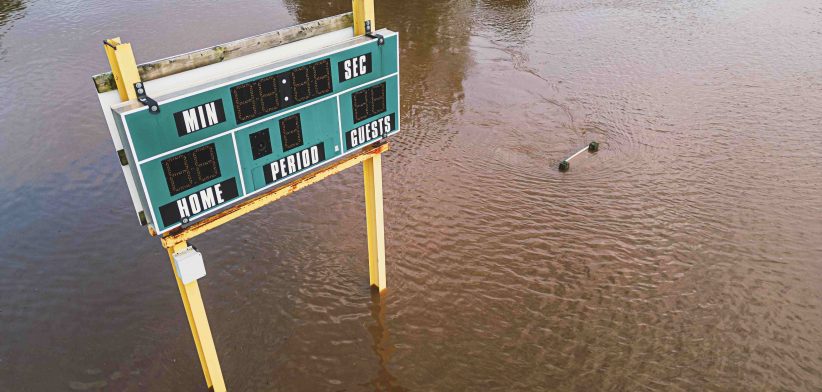Sporting organisations and their directors face growing legal risks as climate change and extreme weather impact sporting events.
A new report from the Environmental Defenders Office and sports climate advocacy group FrontRunners found less than 1% of Australia’s sporting organisations mentioned climate change in their annual reporting.
Sports, Climate Change and Legal Liability outlines the implications of climate change for sports governance, detailing recent impacts, including:
- Bushfire smoke disrupting cricket matches and hospitalising players during the Black Summer fires,
- Extreme heat harming players and spectators during Australian Open tournaments and shortening cycling’s Tour Down Under, and
- Flooding damaging sports grounds and stadiums.
Environmental Defenders Office CEO David Morris said most sporting bodies around Australia were exposing themselves to significant legal and financial risks by failing to grapple with the impacts that climate change was having on players, spectators, officials, and infrastructure.
“These risks occur at all levels of sports administration and on numerous fronts,” Mr Morris said. “Our research found that sports administration bodies in Australia were lagging well behind counterparts in other countries and behind other sectors in Australia.
“Less than 1% of sporting bodies surveyed mentioned climate change in their annual reports and only 6% referred to climate change or sustainability in their strategic plans.”
The report looks at key liability risks to various stakeholders and the responses available to sporting organisations across five key areas:
- Player and spectator welfare,
- Physical infrastructure,
- Contract risk,
- Director’s duties, and
- Reputational risk (from a lack of action, or sponsorship by coal, gas and oil companies).
FrontRunners Decarbonising Sport Lead and AFLW player Nicola Barr said athletes had been speaking up for years on the impacts climate change and related extreme weather was having on the sports because they have had to deal with extreme heat, flooding, and bushfire smoke.
“This report identifies the legal risks this could create for sports organisations and their directors. It also highlights the limited action most have taken to this point and recommends actions that can be taken right now to reduce the risks and protect something most Australians love.”
Sports lawyer Ben Ihle KC said the bases of liability were easy to appreciate.
“They are founded on well-established statutory, contractual, and common law principles of legal responsibility,” he said.
“Sporting organisations and infrastructure operators who fail to acknowledge and address those legal risks are leaving themselves open to suits brought by athletes, spectators, and even commercial partners.”
The report also maps the current engagement with climate risk of 314 major sporting organisations around the country, from the NRL, AFL and Cricket Australia, to Water Polo Australia, Surfing Australia and Golf Australia.
The report found that as of September 2023:
- Only three sporting bodies mentioned climate change in their annual reports (less than 1% of all bodies surveyed),
- 19 referred to climate change or sustainability in their strategic plans (6% of bodies), and
- Nine issued guidance or publications on their website on climate change or sustainability (less than 3% of bodies)
FrontRunners CEO Emma Pocock said sports bodies were lagging behind other parts of society in meeting the challenges of climate change, but there were ample opportunities for them to catch up.
“As a start, all sporting organisations and clubs must commit to impactful actions, including actually implementing climate change policies, ensuring they develop and implement policies that protect players, spectators and officials from extreme weather, review risks to physical infrastructure from extreme weather, and ensure adequate insurance,” she said.








